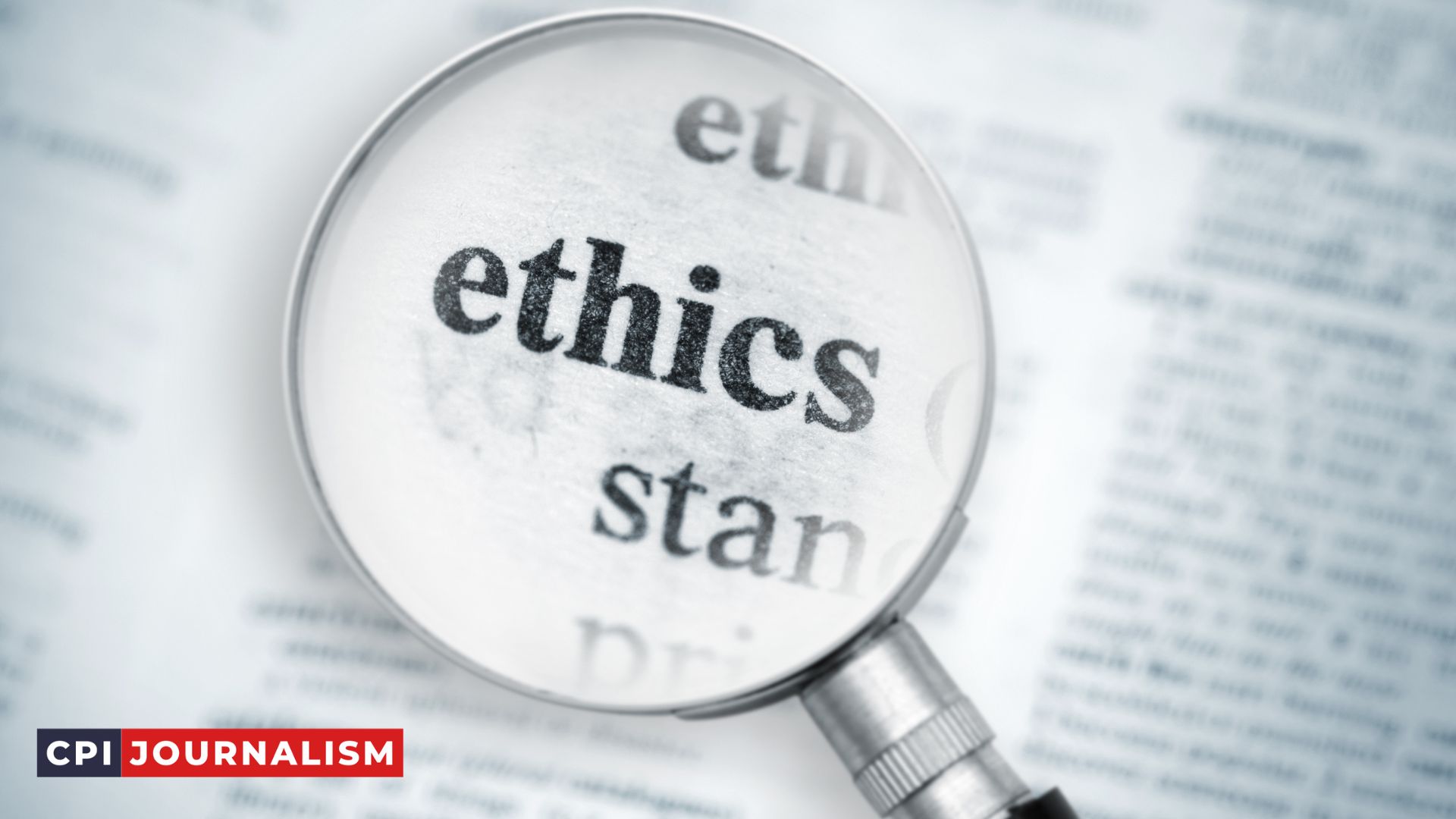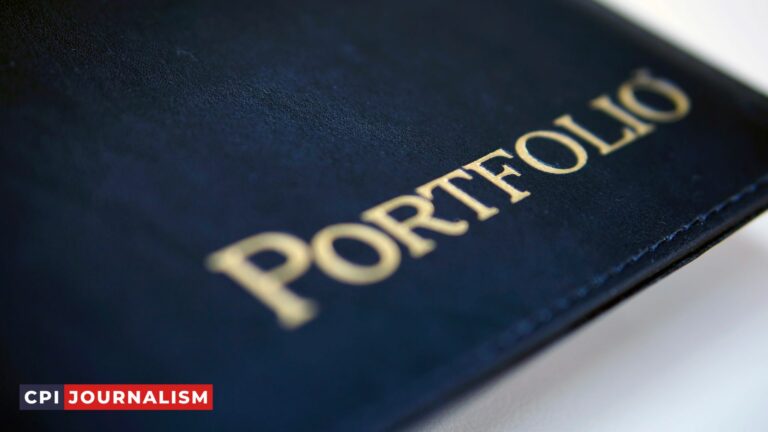What Are The Ethics Of Using Anonymous Sources And How Do Journalists Decide When To Use Them?
As an experienced journalist, I’ve spent many years exploring the complex and often contentious ethical considerations of utilizing anonymous sources.
Anonymous sources can be invaluable in uncovering stories that would not otherwise be reported, but they also raise important questions about journalistic integrity and accuracy.
In this article, I’ll be discussing some of the ethical considerations of using anonymous sources, as well as outlining the criteria that journalists should use to decide when to employ them.
A. Definition of Anonymous Sources
An anonymous source is an individual who provides information to a journalist without revealing their identity. This allows the source to share information without fear of retribution or other consequences.
Anonymous sources are a valuable tool for journalists, as they can provide insight into situations that would otherwise be difficult to access.
In order for a source to be considered anonymous, their identity must remain unknown to the public. The journalist must be aware of the source’s identity, but they are not obligated to share this information. The source must also trust the journalist to keep their identity a secret.
Anonymous sources are commonly used by journalists when reporting on sensitive topics or to protect the safety of the source.
However, there is an ethical responsibility for journalists to ensure that the information provided by anonymous sources is accurate and reliable. This can be difficult, as the journalist has no way of verifying the source’s identity or motivations.
B. Overview Of The Ethics Of Using Anonymous Sources
One of the key ethical considerations when deciding whether to use anonymous sources is understanding the potential risk that may come with it.
Anonymous sources can provide invaluable information and insights that can be used to uncover important stories, but their anonymity also carries with it a certain level of risk.
Journalists must weigh the potential risks of using anonymous sources against the potential benefits that the information they provide can bring.
In some cases, the use of anonymous sources can bring attention to stories that would otherwise remain hidden. This can be particularly true in cases where the source is exposing information that is sensitive in nature and could lead to repercussions for them if their identity is known.
In such cases, using anonymous sources can be a necessary and ethical decision.
On the other hand, the use of anonymous sources can also be seen as a way to skirt the truth or manipulate the public. This can be particularly true when the anonymous source is providing information that is unsubstantiated or biased.
In such cases, the use of an anonymous source can be seen as unethical and potentially damaging to the credibility of the journalist.
Ultimately, the decision to use anonymous sources should be based on careful consideration of the potential risks and rewards.
Journalists should always strive to weigh both sides of the equation carefully and to adhere to a high level of ethical standards when it comes to using anonymous sources.
C. Benefits of Using Anonymous Sources
Using anonymous sources can be highly beneficial for journalists in many ways. It can provide them with access to information that would otherwise be unavailable.
Sources who are willing to remain anonymous may be privy to sensitive information, such as corporate secrets, political scandals, or insider knowledge that is not accessible to the public.
This can provide journalists with an invaluable source of information that can be utilized to uncover stories that would otherwise remain hidden.
Anonymous sources can also provide a degree of protection to journalists. In some cases, sources may be willing to provide information only if they remain anonymous, thus protecting the journalist from legal action or retribution.
This can be particularly important in cases where the source may be in a position of power or have access to sensitive information that they do not want to be revealed.
In addition, using anonymous sources can help to protect the source themselves. Sources may be willing to provide information only if they remain anonymous due to fear of retribution or legal action.
This can be especially important in cases where the source is revealing sensitive or damaging information that could put them in a difficult position if their identity was revealed.
Finally, using anonymous sources can help to ensure the accuracy of the information provided. In many cases, sources may be willing to provide information only if they are not identified, thus ensuring that the information is provided in a truthful and accurate manner.
This can help to ensure that the story is based on reliable sources and is not fabricated or exaggerated.
Overall, the use of anonymous sources can be a valuable tool for journalists in many situations, providing them with access to information that would otherwise be unavailable and protecting both the journalist and the source.
While the use of anonymous sources should be approached with caution, it can be a valuable resource in uncovering stories and ensuring accuracy.
II. When to Use Anonymous Sources
Anonymous sources can be a valuable asset to a journalist when used responsibly and ethically. As a journalist, it is important to weigh the risks and benefits of using anonymous sources before deciding to employ this method.
Anonymous sources should be used when there is no other way to obtain the information. Sources may choose to remain anonymous in order to protect their safety, as well as to ensure that they will not suffer any repercussions for providing the information.
In some cases, anonymous sources may have information that is critical to a story but cannot be obtained from any other source.
Anonymous sources should also be used when the information is of public interest. If a source has information that is relevant to a current event or political issue, it can be beneficial to use anonymous sources to bring the information to light.
This can be especially important for investigative journalism, where anonymous sources may be the only way to uncover important details.
Finally, it is important to consider the credibility of the anonymous source. Journalists should take the time to assess the credibility of the source and the information they are providing.
Questions such as whether the source has any vested interest in the story, or whether they have been reliable in the past, should be asked before using an anonymous source.
Ultimately, using anonymous sources can be an important tool for journalists. When used responsibly and ethically, anonymous sources can help to uncover important stories and provide valuable information to the public.
A. When The Source Is In Danger
When a source is in danger, as a journalist, it is important to consider the ethics involved in using an anonymous source. In such cases, it is essential to weigh the potential consequences of revealing their identity against the importance of the story.
If the source is in danger from a powerful entity, such as a government or corporation, it is even more important to be sure that revealing their identity does not put them in greater danger.
It is important to consider the potential for retaliation or retribution, and to assess the risk of doing further harm to the source.
In these cases, it is essential to ask the source if they feel comfortable being identified. If the source does not feel comfortable, then the journalist should respect their wishes and use anonymous sources.
Moreover, it is important to ensure that the source is aware of the potential consequences of their information being revealed, and to ensure that the source understands the risks involved.
A journalist should never pressure a source into using their name if they are not comfortable doing so.
Finally, it is important to ensure that the source’s identity is protected to the fullest extent possible. This means that the journalist should take extra steps to ensure that their name and whereabouts are not revealed.
This can include using encryption, using pseudonyms, or taking other steps to ensure that the source’s identity is not revealed.
B. When the Source is a Whistleblower
When the source is a whistleblower, a journalist needs to take extra care to ensure that the person’s identity is protected. Whistleblowers often have a great deal of sensitive information that could put their lives in danger if their identity is revealed.
It is the journalist’s responsibility to protect the whistleblower and to make sure that their identity is not revealed in the course of reporting.
When it comes to protecting the identity of a whistleblower, there are several steps that a journalist can take. The first is to make sure that the source does not reveal any information that could be used to identify them.
This includes not providing any identifying characteristics such as age, gender, race, or any other personal information. The source should also avoid using any names that could be connected to them.
The journalist should also use technology to ensure the safety of the source. This includes using encryption when communicating with the source and using secure servers to store information.
The journalist should also create a secure account for the whistleblower to use when sending information. This account should be anonymous and should not contain any identifying information.
Finally, the journalist should make sure that the source is aware of the risks associated with whistleblowing and that they are willing to take those risks. The journalist should also make sure that the source is aware of their right to remain anonymous.
The journalist should always be mindful of the source’s safety and should take measures to protect them from any potential harm.
By following these steps, a journalist can ensure the safety of their source and guarantee that the information provided is accurate and verifiable. By taking the time to protect the source’s identity, a journalist can ensure that the information provided is reliable and trustworthy.
C. When The Source is a Government Official
When a journalist is considering using an anonymous government source, the ethical standards should be even higher. Government officials are in positions of public trust and have a responsibility to uphold the law.
This means that journalists need to be especially cautious when considering using an anonymous source from within the government.
When a journalist is considering using an anonymous government source, they should first attempt to determine the motivations of the source.
Are they providing information because it is in the public interest, or are they motivated by self-interest? If the source is motivated by self-interest, the journalist may want to consider other sources.
The journalist should also consider the implications of using an anonymous government source.
Will the story be damaging to the government or to its reputation? Is the information the source is providing true and accurate? Does the source have direct knowledge of the story or is the information second or third-hand? All of these factors should be taken into consideration before deciding to use an anonymous government source.
When a journalist does decide to use an anonymous government source, they should ensure that the source is not exposed to any risk. The journalist should take steps to protect the identity of the source and ensure that their identity is not revealed.
The journalist should also consider the possibility of using a pseudonym or code name to protect the source, so that they can remain anonymous while still providing valuable information.
In short, the use of anonymous sources from the government should be undertaken with great care and caution.
Journalists should always consider the motivations of the source and the implications of their story before deciding to use an anonymous government source.
D. When The Source Is A Victim Of A Crime
When a source is the victim of a crime, a journalist must take into account a variety of ethical considerations. First, it is important to consider the safety of the source.
A journalist must take great care to protect the identity of a source who is the victim of a crime, as the potential for retribution from the criminal or retaliation from other parties is very real.
If the source is not comfortable with the idea of being identified, a journalist should not pressure them to do so.
Second, a journalist should consider the story’s impact on the source’s life. If the story could have a significant and potentially traumatic impact on the source’s life, then a journalist should proceed with extra caution.
The source should be made aware of the potential implications of their story and should be given the opportunity to opt-out of having their story reported.
Finally, if a source is a victim of a crime, it is important for a journalist to investigate the story thoroughly and to make sure that the story is accurate and fair.
It is also important to consider the potential implications of the story for other victims of similar crimes and to take into account the potential impact of the story on the public discourse surrounding the crime.
In summary, when a source is a victim of a crime, a journalist must take into consideration the safety of the source, the potential impact of the story on the source’s life, and the potential implications of the story for other victims and for public discourse.
They must also investigate the story thoroughly and make sure that it is accurate and fair. By following these ethical considerations, journalists can ensure that they are responsibly reporting on stories involving victims of crime.
E. When The Source Is A Witness To A Crime
When a witness to a crime is the source of an anonymous story, the journalist has a duty to ensure the story is accurate and that the source is not in any danger by coming forward.
This is especially true if the crime involves a powerful or influential person, or a person in a position of authority.
If the source is a witness to a crime, the journalist should take steps to verify the story, such as speaking to other witnesses or obtaining documents or other evidence to corroborate the story.
It is also important to consider the potential ramifications of reporting the story, such as whether it could put the source in danger. The journalist should also consider whether the story is in the public interest, or if it is simply a “sensation” story.
The journalist should also take steps to protect the source’s identity. This could include not revealing the source’s name, gender, race, occupation, or any other identifying information, as well as not sharing any details about the source’s location, family members, or other details that could help identify the source.
Ultimately, when a journalist is considering whether to use a source who is a witness to a crime, the journalist must weigh the potential benefits of the story against the potential risks to the source.
If it is decided that the story is worth telling and that the source can be kept safe, then the journalist should proceed with caution and take all necessary steps to protect the source’s identity.
III. How Journalists Decide When to Use Anonymous Sources
When it comes to deciding whether or not to use an anonymous source, journalists must apply the highest ethical standards to ensure that the source is reliable and that their decision to grant anonymity is justified.
In certain circumstances, using an anonymous source may be necessary to protect an individual’s safety and security, or to avoid retribution.
When possible, journalists should always seek to verify the identity of their sources, even if they are granted anonymity. This is to ensure that the source is reliable and has a sound knowledge of the facts they are providing.
Journalists should also assess the reasons why the source is requesting anonymity to determine whether it is valid and justified.
Journalists should also carefully consider the impact of granting anonymity. What is the potential harm or benefit to the public in granting anonymity? Are there other sources who can provide the same information without needing to grant anonymity? These are just a few of the questions that journalists should be asking themselves before granting anonymity.
Finally, journalists should always strive to be transparent when deciding to use anonymous sources. If anonymity is granted, the journalist should explain why in the article, making it clear that they have taken all possible steps to ensure the accuracy of the information.
This will help to ensure that the public has confidence in the article and the reporting process.
A. Establishing the Source’s Credibility
When it comes to using anonymous sources, the first and foremost step that a journalist must take is to establish the credibility of the source. Anonymous sources can be powerful tools in investigative journalism, but they must be used cautiously and carefully.
The best way to do this is to verify the identity of the source as much as possible. This can involve asking for identification or talking to other people who may know the source. If the source is not willing to provide identifiable information, then the journalist must be extremely careful in verifying the information.
In addition, the journalist should be aware of any potential conflicts of interest that the source may have. If the source is a current or former employee of a company, they should be asked if they are acting in their own interests or in the company’s interests.
If the source is a political figure, their connections and loyalties should be explored before the journalist decides to use the information they provide.
Finally, it is important to assess the source’s motivations for providing the information. If the source is looking to gain something from the information, then the journalist must consider whether or not the story is worth the potential risk of using the information.
A reliable source will always be willing to provide accurate information without expecting anything in return.
By taking these steps, a journalist can ensure that any anonymous source they use is credible and trustworthy. This will ensure that the story is accurate and reliable and that the journalist is not taking an unnecessary risk by using the information provided by the source.
B. Assessing the Source’s Motivation
When journalists are considering using an anonymous source, it is important to consider the source’s motivation for coming forward. It is important to understand the source’s agenda and why they are seeking to remain anonymous.
If a source’s motivation is to reveal information that is in the public interest, then the journalist may feel that it is ethical to use the source.
However, if the source is trying to advance a personal agenda or manipulate the public’s opinion, then the journalist should use caution and exercise their journalistic judgment to determine whether or not to use the source.
When assessing a source’s motivation, it is important to ask questions to gain an understanding of what the source’s agenda is. Questions should include the reason for the source’s anonymity, why they are providing the information, and what they hope to achieve.
It is also important to assess the credibility of the source and the veracity of their claims.
Ultimately, it is the journalist’s responsibility to decide if the source’s motivation is ethical and if the story is worth pursuing.
In some cases, the journalist may decide to use the source, while in other cases, the journalist may decide that the source’s agenda does not merit the use of anonymity and the story should not be pursued.
C. Weighing the Pros and Cons
When deciding whether or not to use anonymous sources, it is important for journalists to weigh the pros and cons carefully. Using anonymous sources can be beneficial in some situations, but it also comes with its own ethical considerations.
Pros:
One of the main advantages of using anonymous sources is that they can provide information that would otherwise be difficult or impossible to obtain.
When a source is willing to speak in confidence to a journalist, they can provide important information without fear of retribution or reprisal. Anonymous sources can also be instrumental in exposing corruption or unethical behavior by public officials or other powerful individuals.
Cons:
The primary downside to using anonymous sources is that it can be difficult for the journalist to verify the accuracy of the information provided. Without being able to directly verify the source’s identity, journalists may find it difficult to trust the information they are given.
Additionally, using anonymous sources can also be used by sources to spread false information or to manipulate the news.
Ultimately, journalists must use their best judgment when deciding whether or not to use anonymous sources. In some cases, the potential benefits of using an anonymous source may outweigh the potential risks.
However, in other cases, the risks may be too great, and the journalist may decide against using an anonymous source.
D. Ensuring the Source is Not Misleading
When using anonymous sources, it is important for journalists to take extra steps to ensure the source is not misleading.
Here are some tips to help ensure the source is not providing false information:
1. Verify the Source: Before using any anonymous source, it is important to verify the source is legitimate. This can be done by consulting other journalists and sources, asking questions to the source, and making sure the source understands the implications of their statements.
2. Ask More Questions: Journalists should always ask questions to the source to ensure they are providing accurate information. This includes asking follow-up questions to clarify any of the source’s statements, as well as asking for evidence to back up any claims.
3. Verify the Facts: To ensure the accuracy of the information provided by the source, journalists should independently verify the facts. This can be done by consulting other sources and doing additional research.
By taking these steps, journalists can help ensure the source is not providing misleading information. This is important to ensure the accuracy and credibility of the story being reported.
IV. Conclusion
The use of anonymous sources is an important tool for journalists, but it is also an ethical minefield. Journalists must always strive to ensure accuracy, fairness, and truthfulness when using anonymous sources, and must always consider the potential risks of using them.
Ultimately, the decision to use an anonymous source should be made on a case-by-case basis, with the journalist carefully weighing the potential benefits and risks.
Informed judgement and caution should be the guiding principles in any decision to use an anonymous source. With the right approach, anonymous sources can provide valuable information to journalists, without compromising their commitment to ethical journalism.
A. Summary of the Ethics of Using Anonymous Sources
When it comes to using anonymous sources, journalists have a moral obligation to be mindful of the ethical considerations involved. It is important to consider the impact that using anonymous sources may have on the public’s trust in the media.
To ensure that the use of anonymous sources is ethical and that it does not damage the public’s trust, journalists must carefully evaluate the situation and decide if the use of anonymous sources is necessary.
When deciding whether to use anonymous sources, journalists should consider the context of the information being reported. They should also consider the credibility of the source and whether the information is reliable.
In addition, journalists should assess the potential impact of the information on their readers and how the use of anonymous sources could affect the public’s perception of the media.
Finally, it is essential that journalists protect the anonymity of their sources and the confidentiality of their information. Journalists should strive to maintain and respect the privacy of their sources and the accuracy of their reporting.
By doing so, journalists can ensure that the use of anonymous sources is ethical and beneficial to the public.
B. Summary of How Journalists Decide When to Use Them
Journalists must always weigh the importance of using anonymous sources against the potential risks that come with it. As a general rule, journalists should only use anonymous sources as a last resort when seeking information that is not available through any other means.
The decision to use an anonymous source should be based on careful consideration of the potential benefits and drawbacks.
The benefits of using anonymous sources include obtaining information that may be difficult to get otherwise, such as insider information or information from sources who may be too afraid to speak openly.
At the same time, there are potential risks associated with using anonymous sources, such as the possibility of incorrect or biased information.
In order to make the right decision, journalists must carefully weigh the potential risks and benefits of using anonymous sources.
They should ask themselves questions such as: Is the information important enough to warrant the use of an anonymous source? Is the source reliable and credible? Is the information verifiable? Is the potential for harm to the source or others outweighed by the potential benefit of obtaining the information?
By carefully considering these questions, journalists can make an informed decision on whether or not to use anonymous sources.
C. Final Thoughts on the Benefits and Risks of Using Anonymous Sources
As a veteran journalist, I have come to see the use of anonymous sources as a necessary tool of the trade.
While there are risks associated with using anonymous sources, these risks can be minimized if journalists take the time to carefully evaluate the source’s credibility, assess the potential risks of using the source, and consider the potential benefits of using the source.
When it comes to the benefits of using anonymous sources, journalists can gain valuable information that would otherwise be inaccessible. Moreover, anonymous sources can provide a unique perspective on an issue, offering an alternative view that could be difficult to obtain without anonymity.
At the same time, journalists must be aware of the potential risks associated with using anonymous sources. First and foremost, journalists must be sure that their source is credible and can be trusted.
In addition, journalists must consider the potential legal risks of using anonymous sources, as well as the risk of being misled by their source.
Ultimately, deciding whether to use an anonymous source is a judgment call that must be made on a case-by-case basis. By weighing the potential benefits and risks of using anonymous sources, journalists can use this tool responsibly and ethically.







